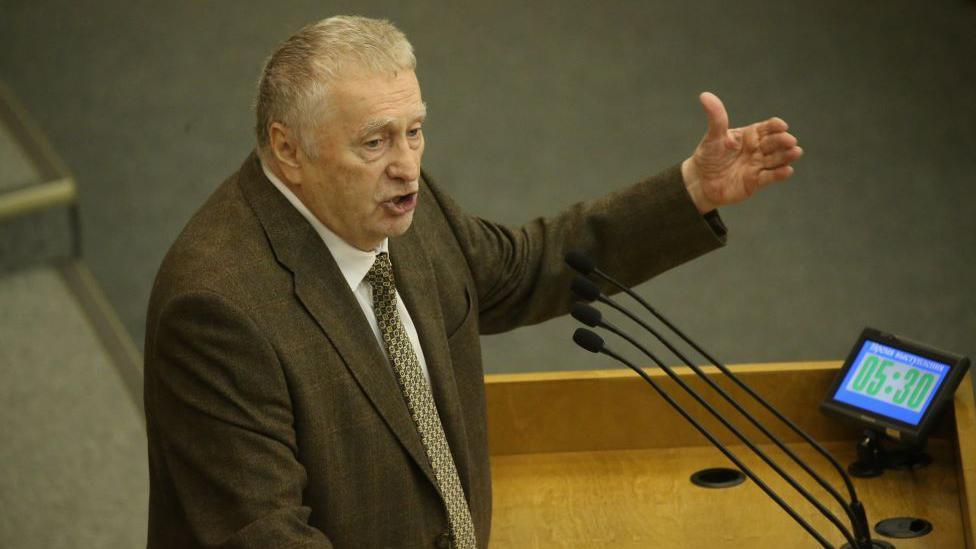Russian ultranationalist politician Vladimir Zhirinovsky was so excited by Donald Trump’s victory, and so sure that it would transform US-Russian relations, he splashed out on 132 bottles of bubbly down at the Duma, Russia’s parliament, and partied away (in his party offices) in front of the TV cameras.
He wasn’t the only one celebrating.
The day after Trump’s surprise White House win, Margarita Simonyan, editor-in-chief of state channel RT, tweeted her intention to drive around Moscow with an American flag in her car window.
And I’ll never forget the moment a Russian official told me she had smoked a cigar and drunk a bottle of champagne (yes, MORE champagne) to toast Trump winning.
In Moscow, expectations were high that Trump would scrap sanctions against Russia; perhaps, even, recognise the Crimean Peninsula, annexed from Ukraine, as part of Russia.
“The value of Trump was that he never preached on human rights in Russia,” explains Konstantin Remchukov, the owner and editor-in-chief of newspaper Nezavisimaya Gazeta.
It didn’t take long for all that fizz to go flat.
“Trump introduced the heaviest sanctions against Russia at that time,” recalls Remchukov.
“By the end of his term, a lot of people were disappointed in his presidency.”
Which is why, eight years on – publicly at least – Russian officials are more cautious about the prospect of a second Trump term.

President Vladimir Putin has even come out and backed the Democratic Party candidate, although that “endorsement” was widely interpreted as a Kremlin joke (or Kremlin trolling).
Putin claimed he liked Kamala Harris’s “infectious” laugh.
But you don’t need to be a seasoned political pundit to understand that out on the campaign trail it’s what Trump has been saying, not Harris, that’s guaranteed to put a smile on Putin’s face.
For instance, Trump’s criticism of the scale of US military assistance for Ukraine, his apparent reluctance to blame Putin for Russia’s full-scale invasion and, during the presidential debate, his refusal to say whether he wants Ukraine to win the war.
By contrast, Kamala Harris has argued that support for Ukraine is in America’s “strategic interest” and she has referred to Putin as “a murderous dictator”.

